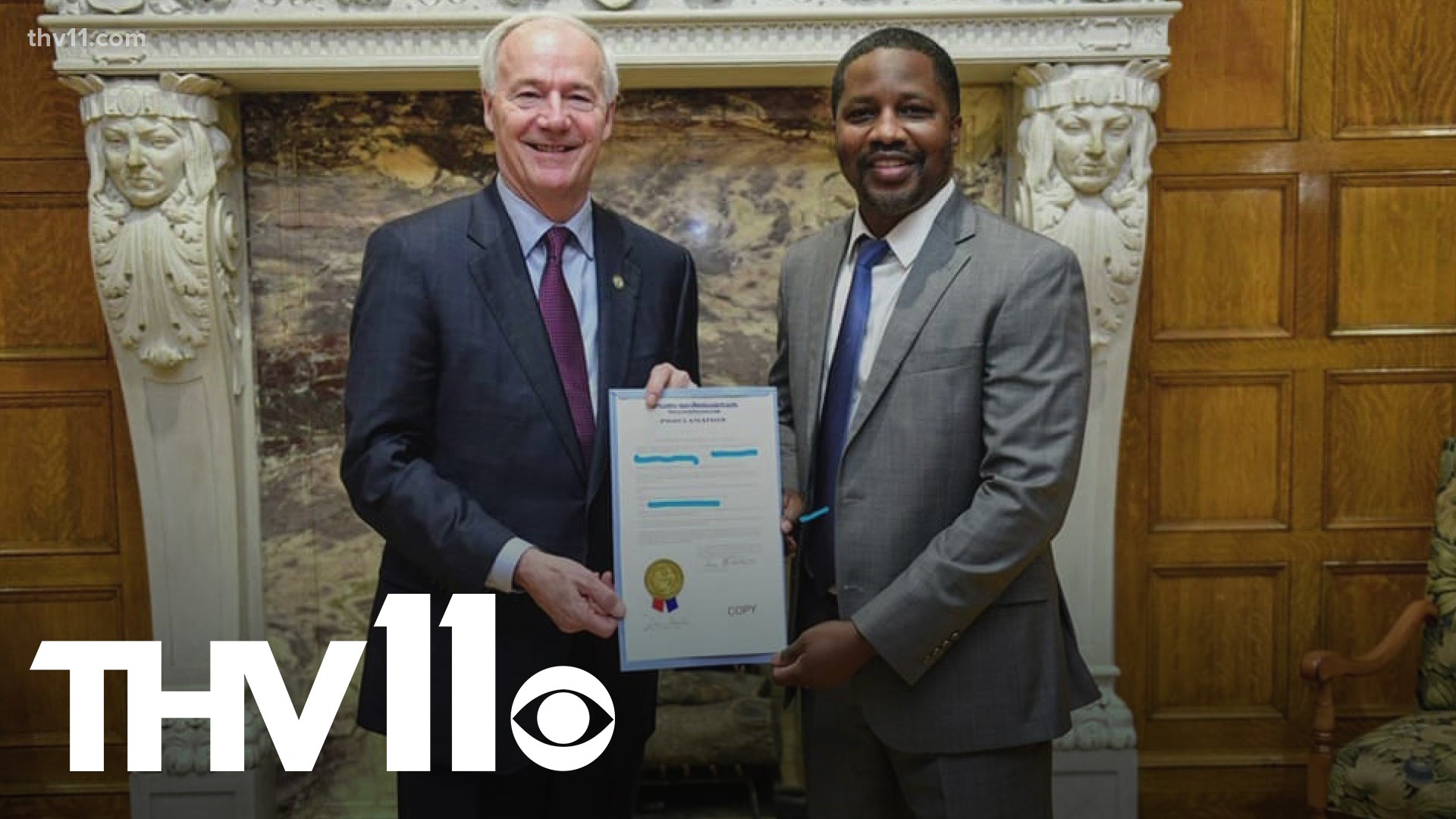LITTLE ROCK, Ark — On a gloomy Thursday morning, a man walked into the Pulaski County Detention Center with only a book in hand and a powerful story that he hoped would spark a fire in the men and women inside the facility.
Kevin Hunt Sr. is an ex-gang member.
He is going back behind bars, not because of a crime, but because of his commitment to giving back.
The former inmate now hopes to be an inspiration for those who may be going down a path he once did.
"I went to prison when I was a teenager, got out, and I continued to do the same thing that I always did," Hunt said.
"I gang banged, I sold drugs, I did commit all other different kind of crimes," he continued in a room occupied with current inmates.
Hunt shook hands and hugged Pulaski County Sheriff Eric Higgins before he told his story to the group.
Higgins refers to his detainees as students and was happy to have Hunt speak with inmates as part of the facility's CSI Re-Entry Program.
The program is community focused, safety driven, and integrity based.
Higgins has known Hunt for a few years and understands how powerful his words can when spoken to the correct crowd.
"Kevin has the experience and what's really important for the detainee students here is hope," Higgins said. "Being able to see yourself outside of these walls succeeding. While we can come and talk about it, we want to bring someone in who can relate."
In a monotonous inflection that carries the weight of a deeper story, Hunt commanded the attention of those wearing inmate attire.
"I've been shot before, ran from the police so many times I can't tell you," Hunt said. "I don't know how many times I have thrown a gun out the window and hid the block and some of you guys know what I'm talking about."
Hunt joined a gang when he was just 12 years old.
He went to prison for the first time when was only 16 years old.
At 20, he was released, but stated that the prison system didn't help with his rehabilitation at all.
"When you coming out of prison, the only thing you thinking about is I ain't gone be able to get a good job," he said.
"So when I got out of prison I said, 'Forget this man, I ain't even going to try'. So that's exactly what I did. I didn't even try," he continued.
That's until his grandmother died in 2001.
Hunt made a promise to her that he would go back to school to get his GED.
The only option that he had was to attend Shorter College in North Little Rock.
"I was hesitant because I really wasn't sure if I needed to be here or if I belonged here. I knew I couldn't read, write or spell," he said.
Hunt said that he didn't have the confidence to confront his illiteracy.
It took him a while to get out of the car, but once he did he said the rest was history.
August will mark 20 years since he walked through the doors of Shorter College.
Shorter College President Jerome Green said that the school is one of the only schools in the United States that the Department of Education allows previously incarcerated adults to enroll.
It's all paid for by Pell grants.
"The Kevin Hunt story is one that tells anyone in America all things are possible," Green said.
"What you're talking about is the magic that takes place when desire meets opportunity," he continued.
Shorter College also participates in the Arkansas Credit Transfer Program which meant Hunt could even go to other colleges to further his education.
Hunt said that the only college that would allow his criminal record was Philander Smith College.
Roderick Smothers, the current president, said that historically Black colleges and universities have always been institutions of second chances.
He said that their mission at Philander has always been catered to taking students no matter what their background or past circumstances are.
Bringing them through their gates to higher education.
"We all make mistakes in life, but that does not mean that we don't deserve an opportunity," Smothers said. "That's what Philander did with Kevin and he is the epitome of what that opportunity means."
Hunt graduated with a degree in business.
He went on to write a book detailing his upbringing and his life behind bars.
After that, he began going to schools such as Watson Chapel to encourage kids to deter from a life of crime.
He eventually landed a job in the governor's office after volunteering for Mike Beebe's campaign in 2007.
Typically felons are ineligible to be hired for state jobs, but Hunt had a group of people who believed in him.
Initially, he performed small jobs such as grabbing coffee and running errands, which eventually lead to a promotion to do work in the community.
"I think the biggest lesson I have learned is to never give up on yourself and to never give up on others as well too," he said.
Hunt was aware that he wanted be an inspiration for others just like him.
That's why he finds it so important to speak to various at-risk groups, encouraging them to better their lives.
Hunt's efforts were recognized by Governor Asa Hutchinson and in January 2021, the governor pardoned him of all of his crimes.
Hunt is no longer a felon, but now a fighter that continues to help others just like him realize the power that they too have.
"It's that hope that maybe I can do this and as long as I'm hoping for something, I'm striving for something," Hunt said.

